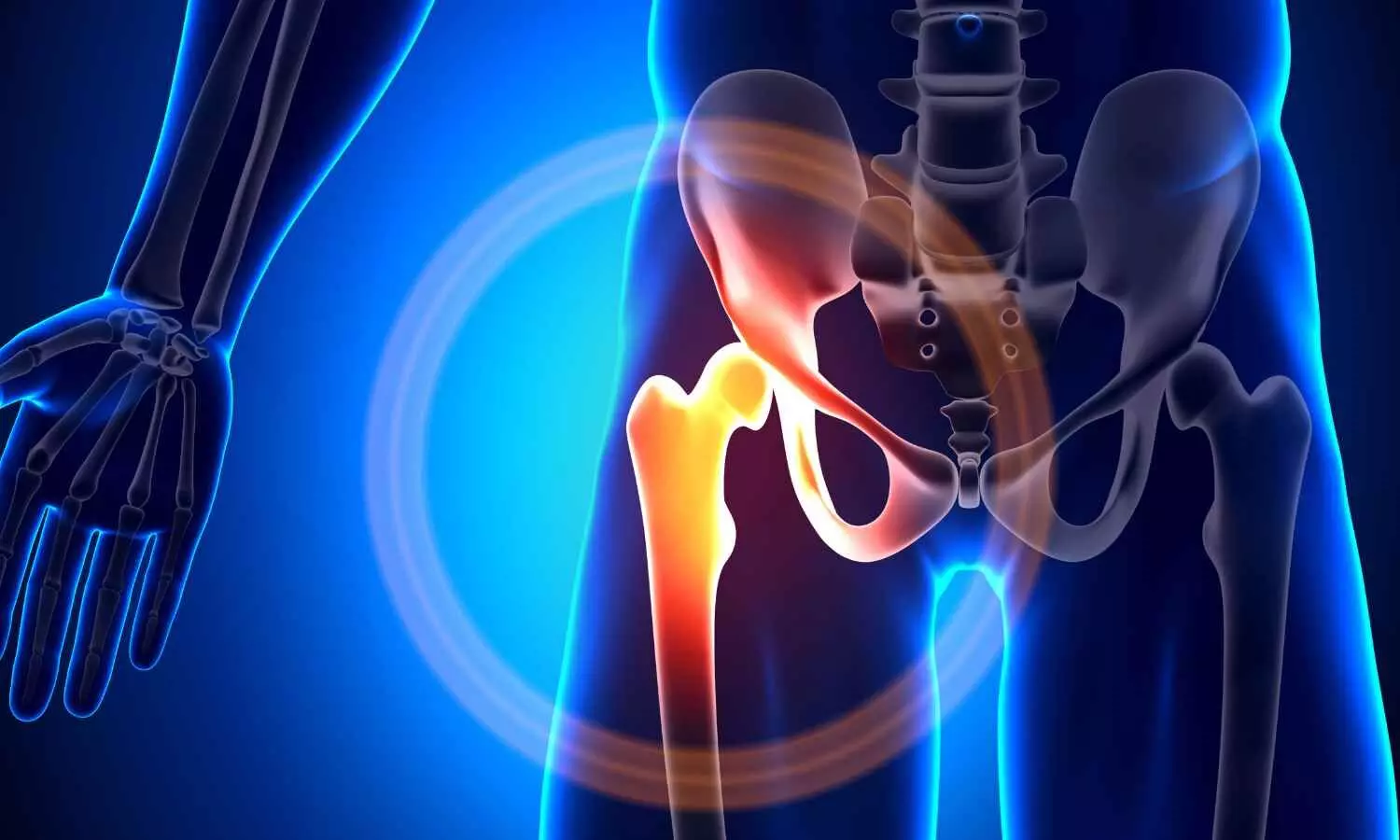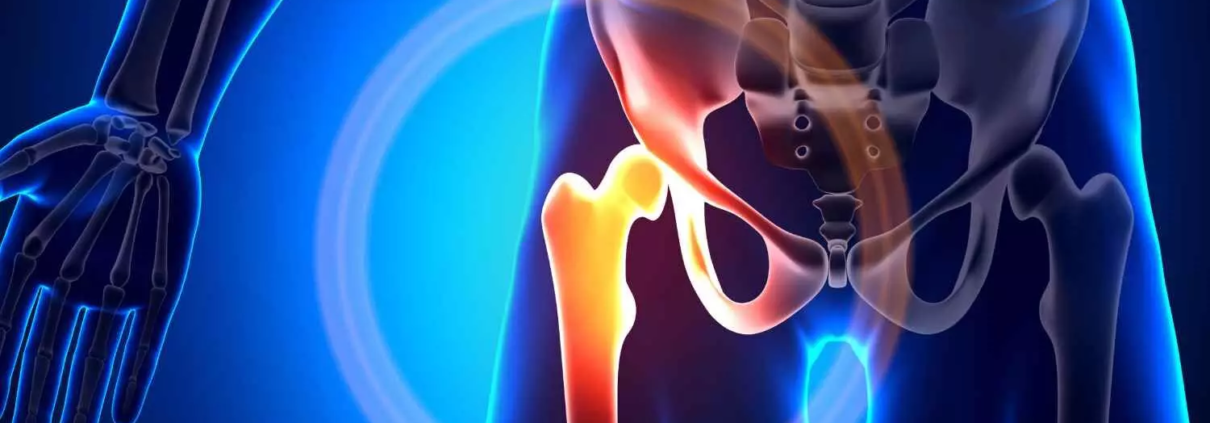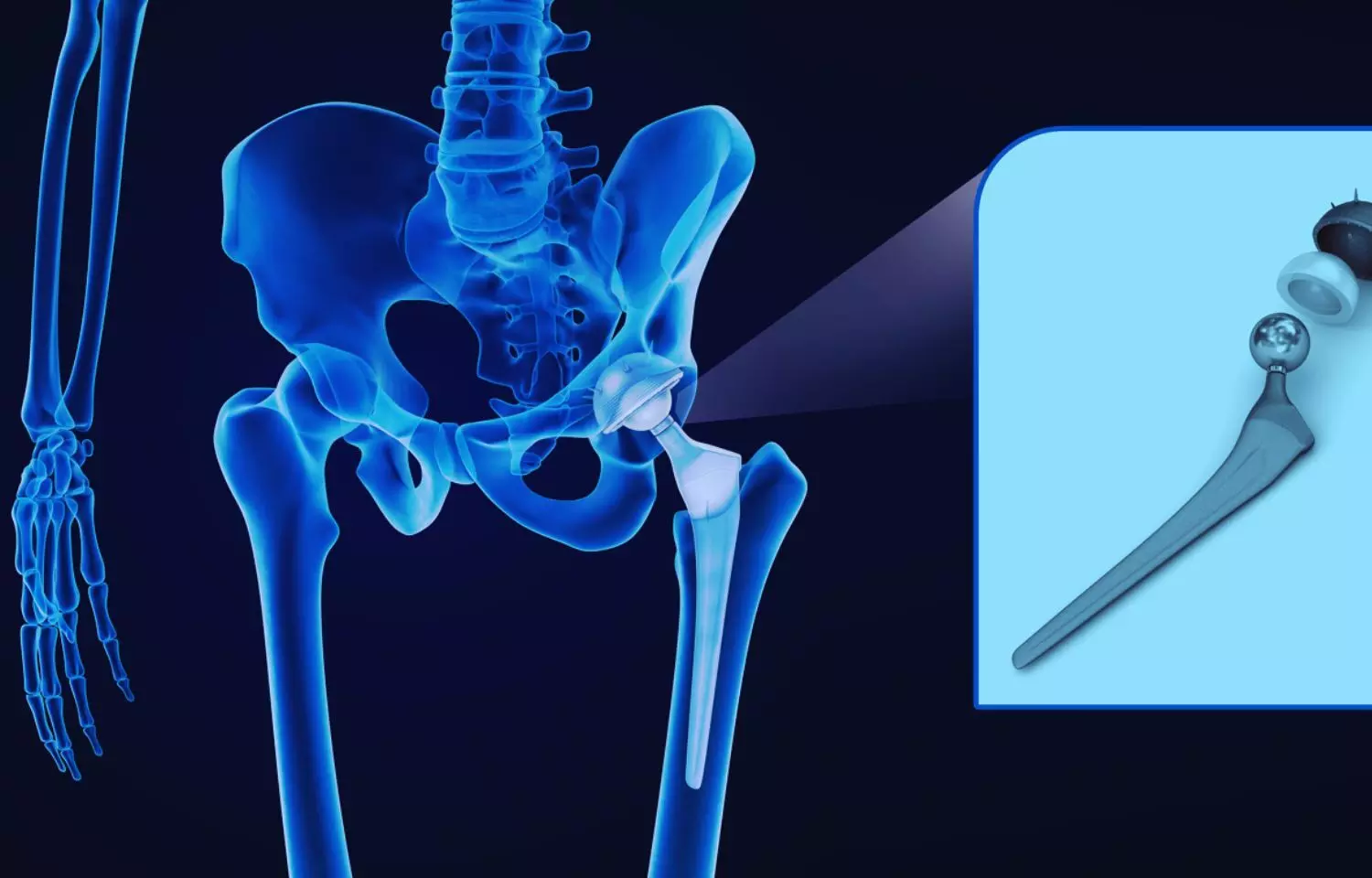Total Hip Surgery more effective than Resistance Training in Hip Osteoarthritis: Study

A recent study found that total
hip surgery substantially reduced hip pain and clinically relevant improvement
in hip function than resistance training. This observation was seen in
individuals aged 50 years and older suffering from hip osteoarthritis as
published in The New England Journal of Medicine.
Hip osteoarthritis is a common disability
disorder in old age causing pain, functional impairment, and reduced quality of
life. Total hip replacement surgery is a routine procedure for individuals with
hip osteoarthritis. Non-surgical procedures like resistance training are one of
the common procedures prescribed. However, there is uncertainty in the previous
literature on the effectiveness of total hip surgery over resistance training.
Hence, researchers from Denmark conducted a trial to evaluate whether total hip
replacement would provide superior results regarding alleviation of
patient-reported hip pain and improved patient-reported function as compared
with resistance training.
A multicenter, randomized,
controlled, superiority trial was carried out by randomly (1:1) assigning the
individuals to undergo total hip replacement or to participate in a supervised
resistance training program using a computer-generated randomization sequence. Individuals
aged 50 years or older who had severe hip osteoarthritis and an
indication for total hip replacement based on hip pain, clinical presentation,
and radiographic imaging were included in the trial. The total hip surgery
included a standard fast-track surgical program while the resistance
training included 1-hour, individual, supervised sessions twice weekly for 12
weeks. After the initiation of the trial, follow-ups were carried out at 3,
6, 12, and 24 months. The primary outcome was the change in patient-reported
hip pain and function from baseline to 6 months as assessed using the Oxford
Hip Score. Secondary outcomes included
changes from baseline to 6 months in patient-reported domains of pain,
symptoms, function in activities of daily living, hip-related quality of life,
and function in sports and recreation.
Findings:
- A total of 109 patients (mean age, 67.6 years)
were randomly assigned to total hip replacement (53 patients) or resistance
training (56 patients). - An improvement (mean increase) was seen in the
Oxford hip score by 15.9 points in total hip replacement and 4.5 points in the
resistance training group in the intention-to-treat analysis. - The total hip replacement group has shown a
significant improvement over the resistance training group in the intent-to-treat
analysis. - From baseline to 6 months, 5 patients (9%) who
had been assigned to total hip replacement had not undergone surgery, and 12
patients (21%) who had been assigned to resistance training had undergone total
hip replacement. - The incidence of serious adverse events at 6
months was similar in the two groups; the majority of such events were known
complications of total hip replacement.
Thus, the study concluded that total
hip replacement resulted in a clinically important, superior reduction in hip
pain and improved hip function in individuals aged 50 years and older with hip
osteoarthritis.
Further reading: Frydendal T,
Christensen R, Mechlenburg I, et al. Total Hip Replacement or Resistance
Training for Severe Hip Osteoarthritis. N Engl J Med.
2024;391(17):1610-1620. doi:10.1056/NEJMoa2400141





